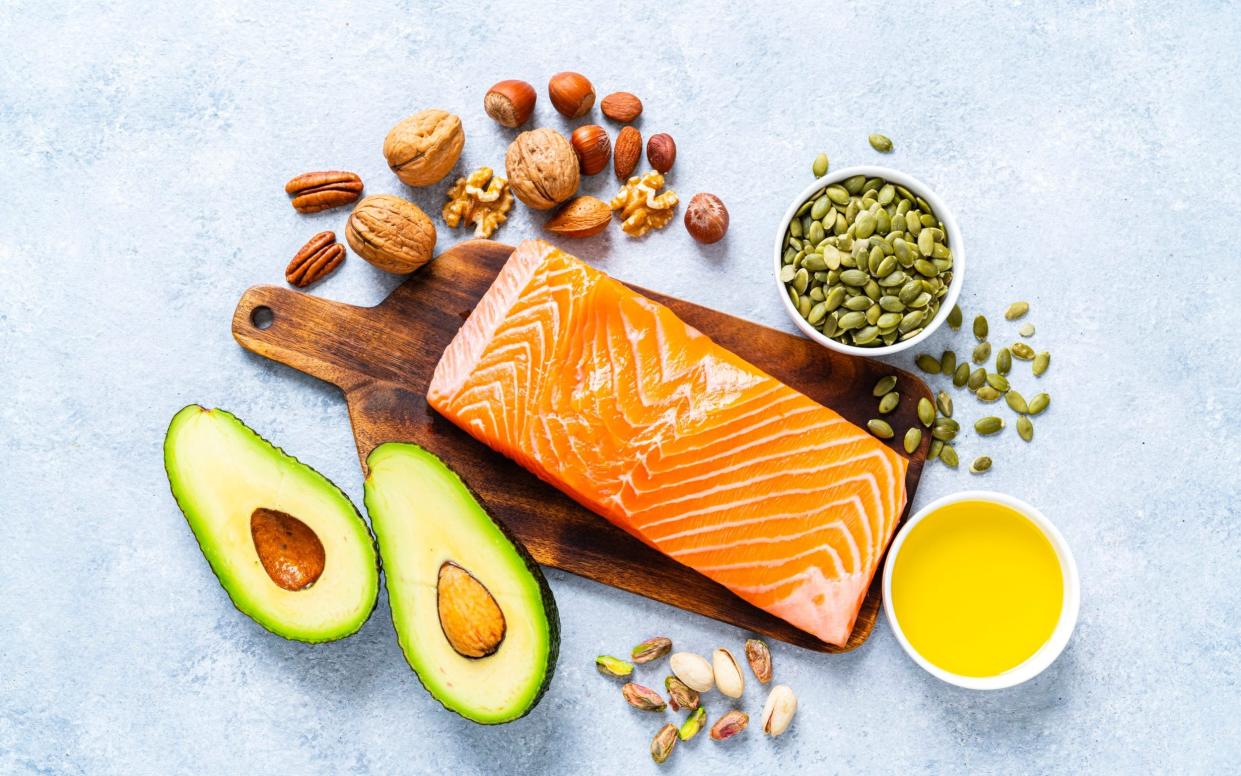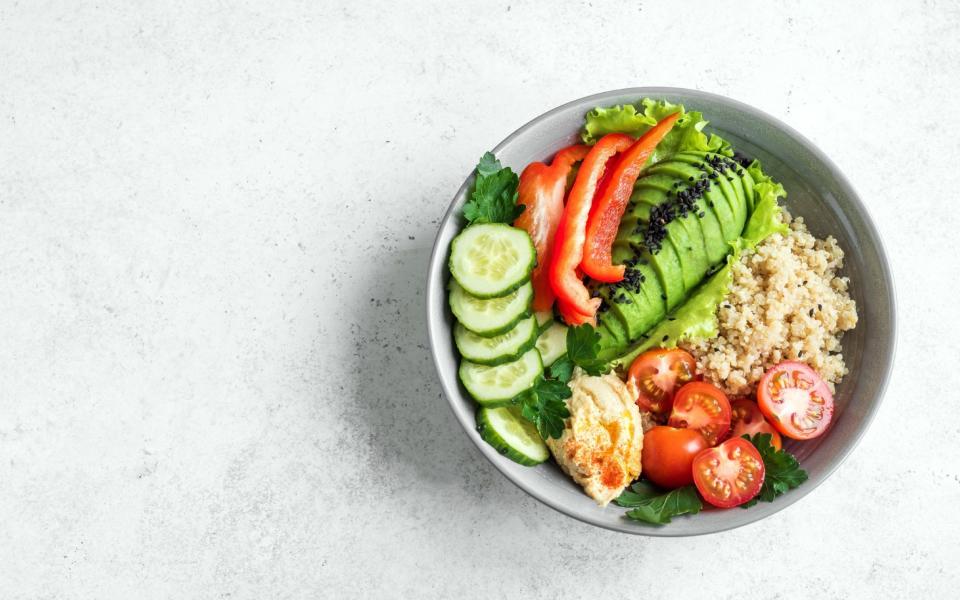How to keep your heart healthy, according to a cardiologist

- Oops!Something went wrong.Please try again later.
Dr Neil Srinivasan, consultant cardiologist and heart rhythm specialist, shares his daily routine for a healthy heart.
First thing
I get my body moving as soon as I wake up with some gentle yoga or stretching. The aim is to get blood flowing and your heart rate up. It also kickstarts your metabolism, before you fill up on glucose at breakfast. That means you burn fat and you’re less likely to get clogging and furring of the arteries, both of which put you at risk of heart attacks and angina.
Breakfast
I’ll have porridge or bircher muesli because a breakfast of oats is among the best for our hearts. Big spikes of sugar – from, say, a chocolatey pastry – can damage your heart arteries over time, while the resulting surges of insulin cause people to gain weight and get type 2 diabetes, which is a big risk factor for heart disease.
Oats, on the other hand, release energy slowly. They’ll fill you up until lunch and they reduce LDL cholesterol – that’s the bad sort – because of the beta-glucan soluble fibre within them.
Exercise
I make sure to get up from my desk and wander around the hospital – up and down some stairs or, ideally, outside every half an hour. Having low vitamin D has been shown to increase your risk of heart attack and failure so getting into the daylight is a good idea.
Around 2.5 hours of exercise a week is ideal for heart health, but it doesn’t have to be hot yoga or Lycra-clad cycling.
Indeed, there are harms associated with intense training. I see a lot of elite cyclists and some ultra-marathon runners who develop atrial fibrillation – an irregular heart beat – which is associated with the risk of stroke and heart failure. A brisk, 20-minute walk is great: your cardiovascular system will thank you.

Lunch
I try to eat salad, with avocado and hummus. The Mediterranean diet (fresh fruit and veg, wholegrains, beans and seeds) has been proved to lower your risk of heart disease. I drizzle over extra virgin olive oil – it’s a stabiliser of the cholesterol system and of the plaques that form within the arteries, increasing your risk of heart disease.
I’ll try to sneak in tinned mackerel or sardines. The omega 3 in oily fish has huge heart benefits, reducing triglycerides, a type of fat in your blood, and improving the good cholesterol.
Stress
Stress is a big factor in cardiovascular disease. It raises your blood sugars and makes you more likely to put on weight. Stress hormones also have a negative effect on the linings of the arteries, making them more likely to become inflamed which increases the risks of heart attacks.
My stress-reliever is normality – getting home to put the kids to bed and hear their funny stories. The odd glass of wine is fine, but using alcohol to destress doesn’t help. Drinking to excess is linked to heart rhythm problems, and it can also cause something called alcohol cardiomyopathy, when the muscle itself is damaged.

Supper
If an operation goes on late, it’s tempting to stop at a fast-food place on the drive home. But experimental evidence suggests that ultra-processed foods may contribute to higher energy intakes and weight gain. They’re also high in trans-fats and sodium, and low in potassium and dietary fibre, characteristics linked to heart disease, while excessive sugar intake from these foods is associated with a risk of obesity, hypertension and type 2 diabetes.
Ideally, we eat rice with fish or chicken, and fresh fruit and veg helps to fight free radicals that can damage your heart. I also try not to eat too much salt as it can lead to hypertension, accelerating narrowing in the arteries and putting more strain on the heart.
Sleep
During sleep blood pressure and heart rate are lower, reducing strain on the cardiovascular system. Getting less than six hours of sleep – or poor sleep where you wake often – increases stress hormones. Sleep hygiene is vital. The key is having a routine, a dark room and I use white noise too. Usually, that keeps me snoozing.
As told to Hattie Garlick

